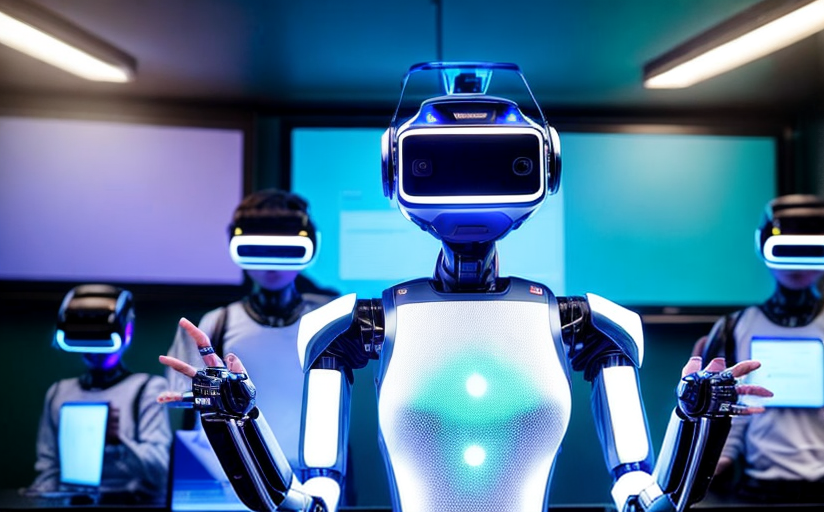The Transformative Role of Artificial Intelligence in Modern Education
As an expert in the artificial intelligence industry, I have witnessed firsthand the seismic shifts introduced by AI in various sectors, particularly in education. The traditional learning environment's evolution into a technologically driven structure has been largely influenced by the integration of AI.
Enhancements in Teaching Methodologies
AI has significantly aided in improving teaching methodologies. The use of advanced AI-powered tools and applications allows teachers to design more effective lesson plans, present interactive content, and deliver lectures more efficiently. Virtual reality, for instance, presents an immersive learning environment, making complex topics more relatable and hence, easier to comprehend.
Personalized Learning
Each learner has a unique capacity to learn and understand concepts. AI enables individualized learning by considering each student's learning pace, strengths, and weaknesses. AI tutors provide additional assistance, adaptive learning programs accommodate varied learning styles, and intelligent analytics help identify areas needing improvement.
Administrative Tasks
AI has revolutionized the way academic institutions administer their tasks. Automation of administrative tasks like scheduling, attendance monitoring, and grading assignments, frees up more time for educators to focus on the core tasks of teaching and mentoring.
Performance Monitoring
AI is crucial in student performance monitoring. It allows for real-time tracking of student interactions and achievements and provides predictive analytics to anticipate future performance based on current behavior and progress.
Ethical Considerations
However, it is also essential to note the potential downsides and ethical implications of AI in education. Paramount is the risk of data breach and privacy invasion. There could also be over-reliance on AI, diminishing the human connection vital in a learning environment. There's the risk of AI systems making critical decisions that are better left in human hands.
Looking Forward
Based on current trends, AI's future in the education sector seems promising. We can expect more refined algorithms, improved personalization, and better integration. However, it is crucial to optimize its use by implementing strict data protection measures, ensuring transparent algorithms and maintaining a balance between AI use and the irreplaceable human touch in teaching.
Conclusion
AI indeed holds transformative power in revolutionizing the way we perceive education today. However, it is incumbent on the entire academic community, educators, administrators, parents, and students to employ a proactive approach in harnessing its potential while ensuring ethical considerations are not bypassed. Tomorrow's learning environment depends on how we shape it today.




















Comments
Leave a Comment